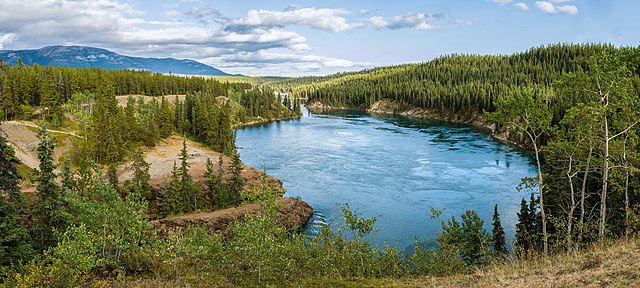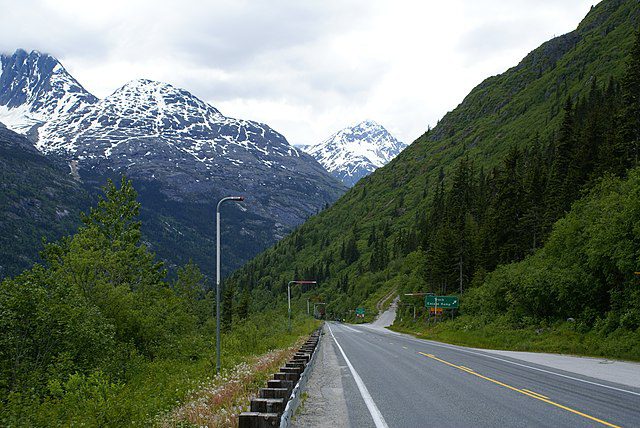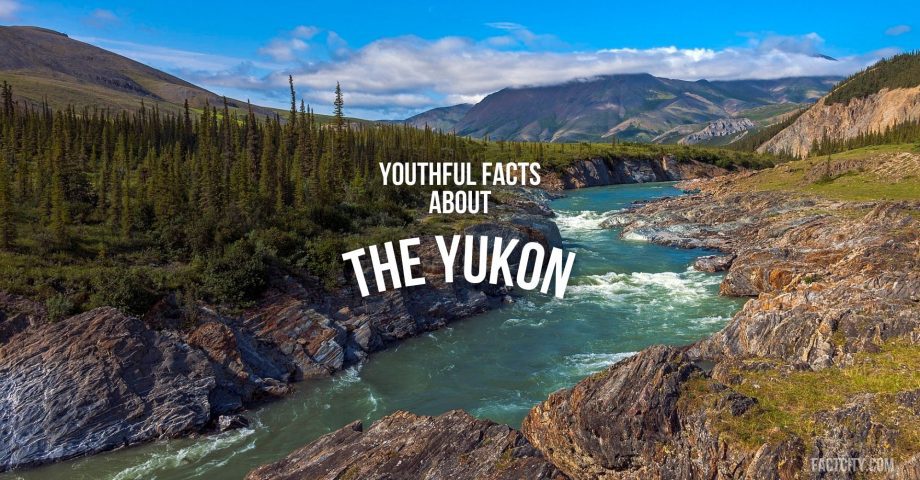The Yukon is one of the most spectacular park regions you’ll ever hope to visit across North America – it’s a huge, sparse territory to the northwest of Canada that’s home to some spectacular natural sights – making it a fantastic tourist spot for hikers and photographers. Whether you love the Yukon or you’re looking to visit in the near future, here are some fun facts about the Yukon you’ll want to remember.
1. The Yukon is home to North America’s second-highest peak.
Mount Logan, which stands at an impressive 19,550 feet (or 5,959m), is officially the highest peak across Canada – and it’s even the second-tallest peak in North America. It’s second only to Denali, which you’ll find over in Alaska, US.
2. It’s an extremely sparse region.
The Yukon measures a staggering 482,443 km² – that’s around 186,272 square miles. However, there are very few people, considering the size of the expanse, actually living across the territory. It’s said to only be home to 38,000 people!
3. Most of the people who live in the Yukon live in the capital.
Of the 38,000 people who live across the Yukon, the vast majority live in one area – Whitehorse, which is technically the territory’s capital. Whitehorse alone is home to more than 29,000 people – meaning the remaining region is only populated by around 9,000 citizens!

4. Although the Yukon is massive, it’s not even the biggest Canadian territory.
Yes, as bizarre as it sounds, the Yukon is actually the smallest out of all of Canada’s three territories. Considering it’s a similar size to Spain, that’s pretty mind-boggling!
5. It’s home to the world’s smallest desert.
Well, technically, in any case. In a rare moment where the Yukon is notable for something being small, the Carcross Desert claims the record of being the titchiest designated desert space worldwide – it’s only around a square mile wide. However, its status as a desert is disputed somewhat, as it’s more a series of dunes and isn’t particularly dry.
6. Prospectors during the Gold Rush traveled across the Yukon.
Gold was discovered in Klondike in 1896, which led to the mass influx of prospectors traveling across the continent to mine for a fortune. The demand was so massive, in fact, that there was a railway built – the White Pass opened in 1898 – however, it arrived just too late to help Gold Rushers, as mining mania was all but over by that point!
7. There are many, many more animals than people in the Yukon.
As established, there are very few people living across the Yukon – meaning it’s understandable the local animals here outnumber them greatly. In fact, it’s said there are around 70,000 moose alone across the territory. You’re also likely to see plenty of Dall sheep and migrating caribou, too!
8. Endless summer exists up in the Yukon.
The term “endless summer” has some truth to it in the Yukon – as between the months of June and September, darkness never falls – there’s 24 hours of solid sunlight! This is reversed in winter, when the region experiences polar night – when the sun doesn’t shine at all. Better get those rays while you can, then!
9. It’s witnessed the coldest temperature in North America, period.
The Yukon gets mighty cold – to such an extent that Snag, Yukon, broke temperature records in 1947. The area saw temperatures drop as low as a super-chilly -81.4 degrees Fahrenheit, or -63 degrees Centigrade.

FAQs about the Yukon
Why is the Yukon so famous?
The Yukon is mostly famous thanks to its incredible landscapes, but perhaps more so for playing host to the Gold Rush of the late 19th century. The Rush helped to shape the territory’s transport, at least!
Is the Yukon technically in Canada or Alaska?
The Yukon is a Canadian territory, up in the northwest – it borders the Arctic Ocean to the very north.
Why don’t people live in the Yukon?
A few thousand people live in the Yukon, but the reason why it’s so sparsely populated is because the area is subarctic for most of the year – it’s just not sustainable to raise large populations in!
Further reading:
https://facts.uk/tag/Canada
https://www.travelyukon.com/en
https://www.nationalgeographic.com/travel/destination/yukon
Do you know any interesting facts about the Yukon? Share them in the comments below!










